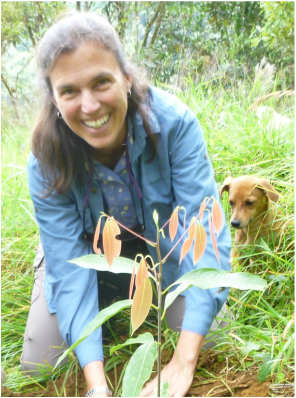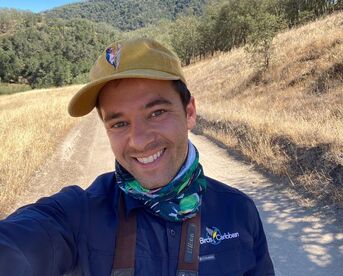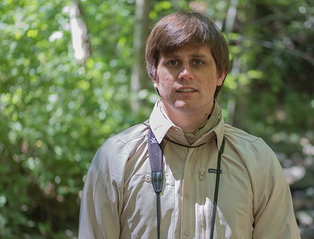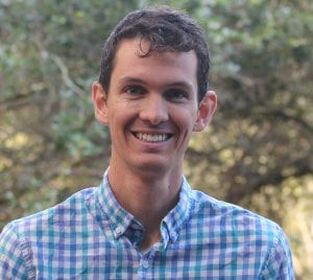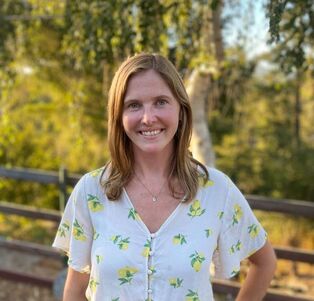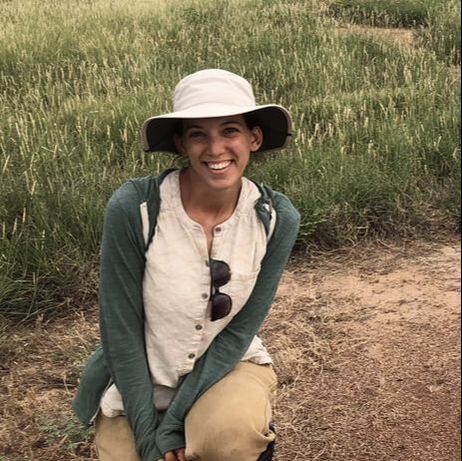Dr. Karen Holl
Postdoctoral fellow |
Karen Holl (kholl at ucsc.edu) is a Professor of Environmental Studies at the University of California, Santa Cruz. Her research focuses on understanding how local and landscape scale processes affect ecosystem recovery from human disturbance and using this information to restore damaged ecosystems. Her current research focuses in rain forests in Latin America and chaparral, grassland and riparian systems in California. She advises numerous public and private agencies on land management and restoration; recently she has been working to improve outcomes of the effort of the many large-scale tree growing campaigns. In 2008 she was selected as an Aldo Leopold Leadership Fellow and is committed to communicating with policy makers and the public. She teaches courses in restoration ecology, conservation biology, and environmental problem solving. She served as chair of the Environmental Studies Department and as the faculty director for the Ken Norris Center for Natural History at UC Santa Cruz. She is a Fellow of the California Academy of Sciences and the Ecological Society of America, and was the 2017 winner of the Theodore Sperry Award of the Society for Ecological Restoration. Her Primer of Ecological Restoration was published by Island Press in 2020.
|
|
I am an ecologist broadly interested in species interactions in forest communities. The common thread in much of my work has been a focus on animal-seed interactions (i.e., dispersal, predation, and hoarding). My recent PhD centered on elucidating the phenology, diversity, and interaction dynamics of mutualistic networks of tropical plants and their avian seed dispersers in farmland landscapes of the Dominican Republic. Moving forward, I am most interested in investigating the mechanisms affecting seed dispersal and recovery of forest communities in tropical human-modified landscapes. For my current postdoc, I will be analyzing the most recent results from the long-term “Islas” forest restoration study in southern Costa Rica. Among other objectives, this work will focus on how initial restoration interventions and landscape context influence the establishment of rare and late-successional tree species.
|
Graduate Students
|
I seek to better understand the succession and ecosystem services of restored floodplain habitats in the California Central Valley, and how these are driven by natural processes of the river system. I am interested in what landscape and regional factors predictably influence a successful and persisting restoration project and how this could be applied to future projects. My research will examine the changes in understory and overstory plant composition at older restoration sites along the Sacramento River. I plan to use geospatial data and vegetation modeling to reconstruct the historical environment and to forecast and visualize the impacts of a changing climate and water use on ecosystem function.
|
|
Christina Blebea
|
I am broadly interested in restoration processes in tropical forests. As young secondary forests become increasingly pervasive across the Latin America, I am curious what the future will be for these ecosystems. I am particularly interested in the ways that plant-animal interactions, especially seed dispersal, may drive continuing succession in secondary forests. My research in southern Costa Rica will investigate the influence of avian seed dispersers on establishment of later successional large-seeded tree species. I plan to analyze existing long-term data sets, examine functional traits of trees in the regional species pool, and experimentally test the extent to which certain larger-seeded tree species are dispersal-limited in mid-successional sites initially subject to varied restoration methods and landscape contexts.
I am broadly interested in restoring degraded California ecosystems to increase biodiversity, ecosystem function, and foster stewardship. I intend to focus my research on California coastal prairies, specifically on addressing concerns with regional homogenization of species under current restoration practices. I plan to compare remnant versus restored prairie sites to learn how heterogeneity in microsites (e.g., microtopography, gap characteristics, soil moisture) and seed bank/seed dispersal dynamics influence key processes in community assembly, as well as develop strategies on how to achieve pre-disturbance conditions for restoration success. I hope to experiment with reintroducing more rare and highly specialized plants, as well as developing climate-smart plant selection recommendations that consider current and future environmental conditions. I am researching insect-plant interactions in tropical forest restoration in Latin America. I am specifically interested in how myrmecochory facilitates succession in secondary forests. I hope to find seed dispersal of later successional trees by ants in my research in Costa Rica and potentially other restoration plots in Latin America. I will then experimentally test how ant communities impact succession. |
Past Lab Members
Justin Luong (Ph.D. 2022). Assistant Professor, Cal Poly Humboldt
Josie Lesage (Ph.D. 2020): Environmental Science Instructor, Clark College
Andy J. Kulikowski II (Ph.D. 2020): Lecturer, Santa Clara University
Alicia Calle (Ph.D. 2019): R2A Strategy Advisor, The Nature Conservancy
J. Leighton Reid (Ph.D. 2013): Assistant Professor, Virginia Tech
Tara Cornelisse (Ph.D. 2013): Invertebrate Ecologist, NatureServe
Daniella Schweizer (Ph.D. 2012): Forest Restoration Consultant
Michael Vasey (Ph.D. 2012): Former Director, San Francisco Estuarine National Research Reserve (retired)
Rebecca Cole (Ph.D. 2009): Restoration Coordinator, Restor Platform and Forest Restoration Consultant
Prairie Moore (M.S. CSU Chico 2009): President, Environmental Division, NRM Corporation Environmental Services
Charles McClain (M.S. CSU Chico 2009): Associate Ecologist, HT Harvey & Associates
Martha Bonilla-Moheno (Ph.D. 2008): Professor, Insituto de Ecología, Xalapa, Mexico
Aaron Gabbe (Ph.D. 2007): Director, Western Riverside County Regional Conservation Authority/Riverside County Transportation Commission
Liba Pejchar (Ph.D. 2004): Professor, Colorado State University
Grey Hayes (Ph.D. 2002): Research and Education Coordinator, Swanton Ranch, Cal Poly San Luis Obispo
Felicia Orah Rein (Ph.D. 2000): Research Scientist, Ministry of Agriculture, Soil Conservation Department, Israel
Josie Lesage (Ph.D. 2020): Environmental Science Instructor, Clark College
Andy J. Kulikowski II (Ph.D. 2020): Lecturer, Santa Clara University
Alicia Calle (Ph.D. 2019): R2A Strategy Advisor, The Nature Conservancy
J. Leighton Reid (Ph.D. 2013): Assistant Professor, Virginia Tech
Tara Cornelisse (Ph.D. 2013): Invertebrate Ecologist, NatureServe
Daniella Schweizer (Ph.D. 2012): Forest Restoration Consultant
Michael Vasey (Ph.D. 2012): Former Director, San Francisco Estuarine National Research Reserve (retired)
Rebecca Cole (Ph.D. 2009): Restoration Coordinator, Restor Platform and Forest Restoration Consultant
Prairie Moore (M.S. CSU Chico 2009): President, Environmental Division, NRM Corporation Environmental Services
Charles McClain (M.S. CSU Chico 2009): Associate Ecologist, HT Harvey & Associates
Martha Bonilla-Moheno (Ph.D. 2008): Professor, Insituto de Ecología, Xalapa, Mexico
Aaron Gabbe (Ph.D. 2007): Director, Western Riverside County Regional Conservation Authority/Riverside County Transportation Commission
Liba Pejchar (Ph.D. 2004): Professor, Colorado State University
Grey Hayes (Ph.D. 2002): Research and Education Coordinator, Swanton Ranch, Cal Poly San Luis Obispo
Felicia Orah Rein (Ph.D. 2000): Research Scientist, Ministry of Agriculture, Soil Conservation Department, Israel
